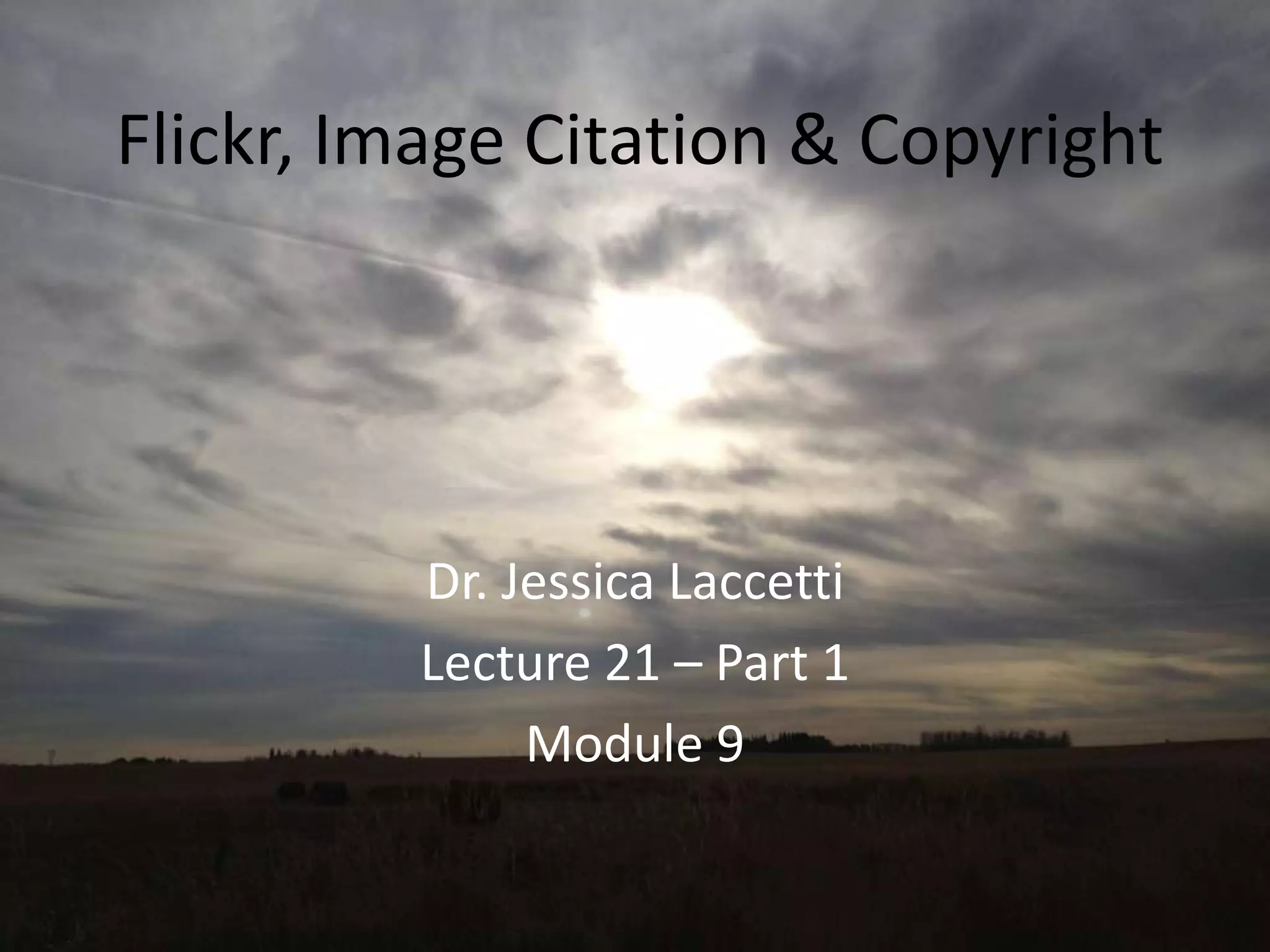
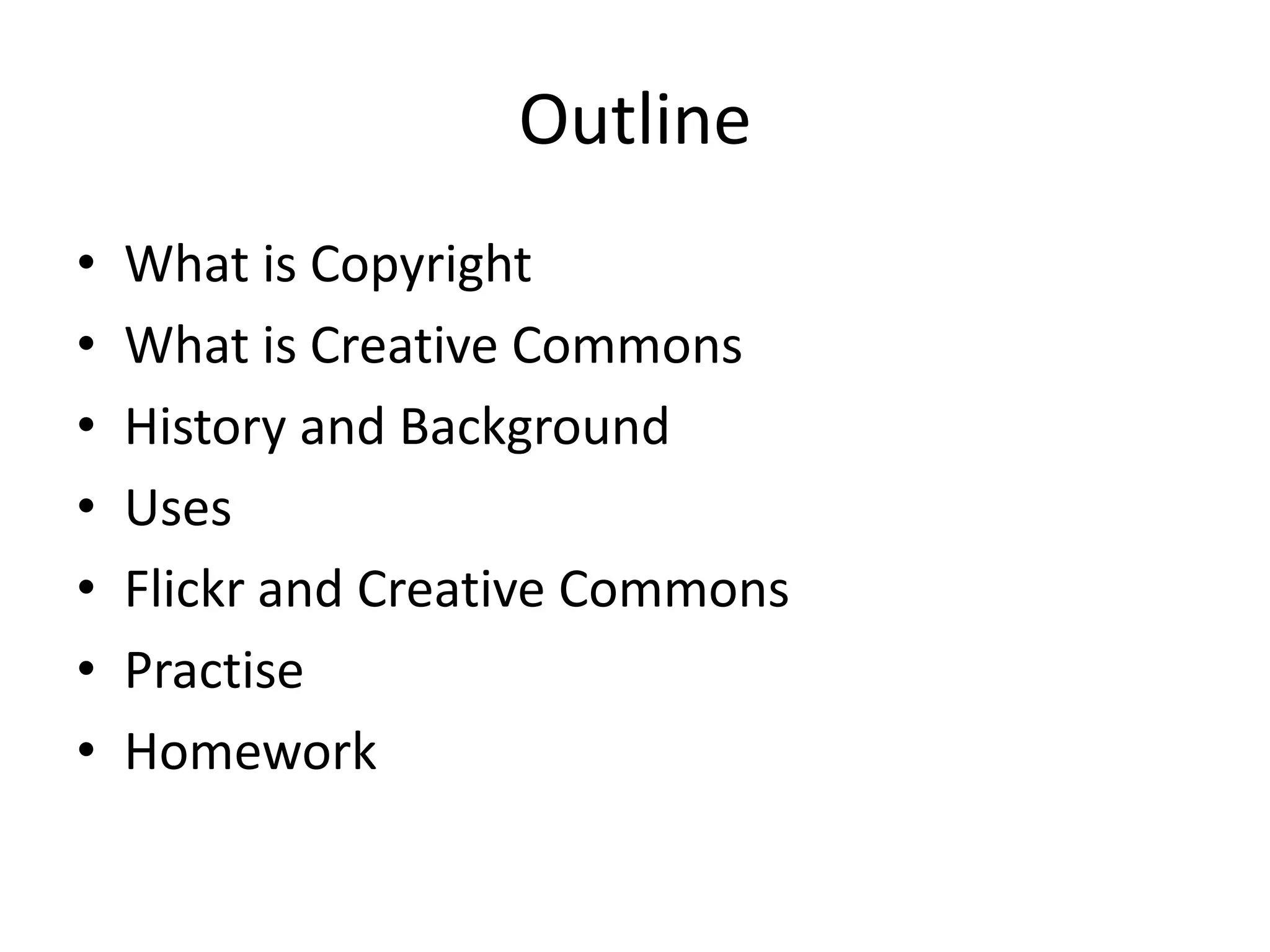
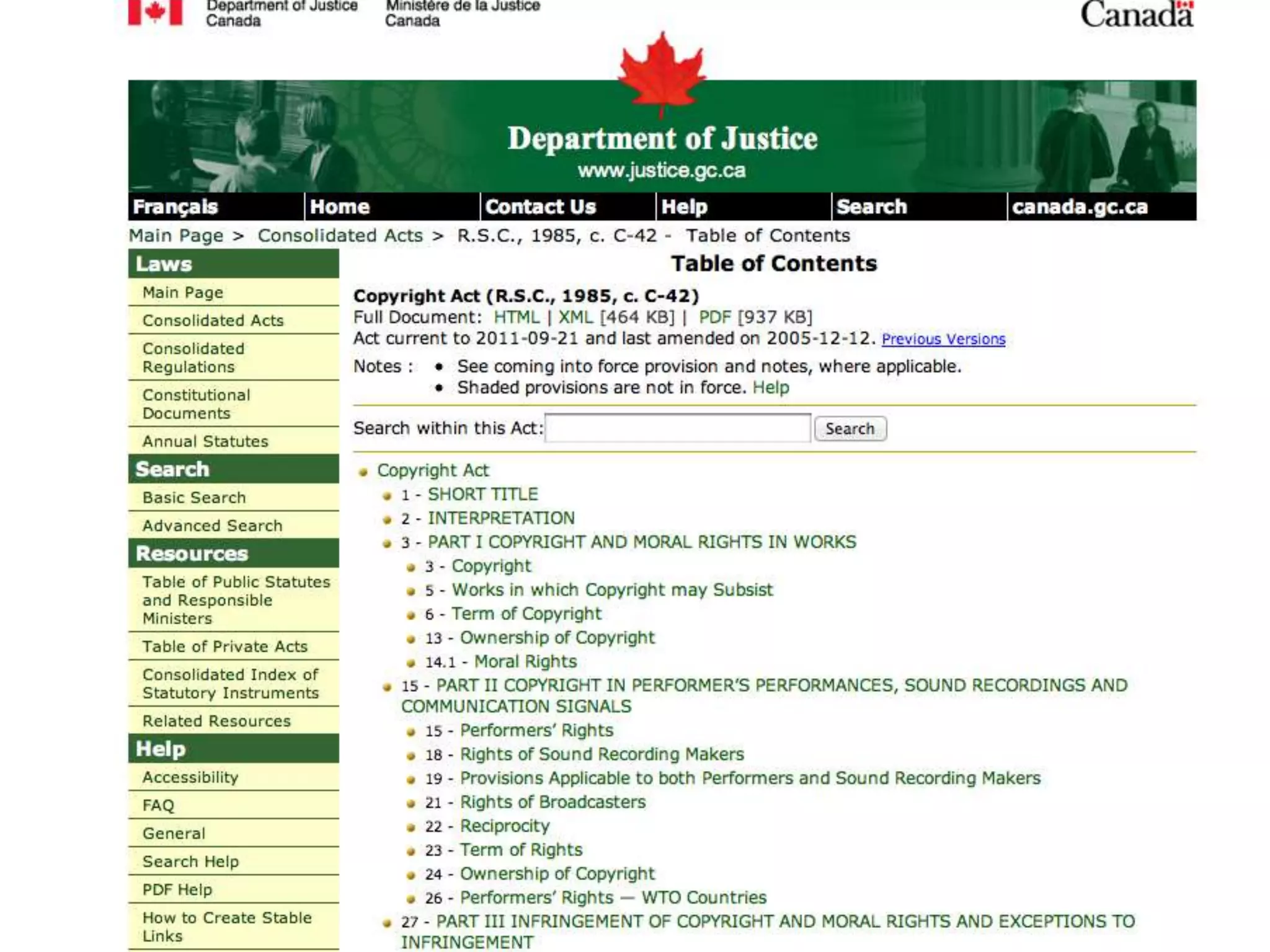
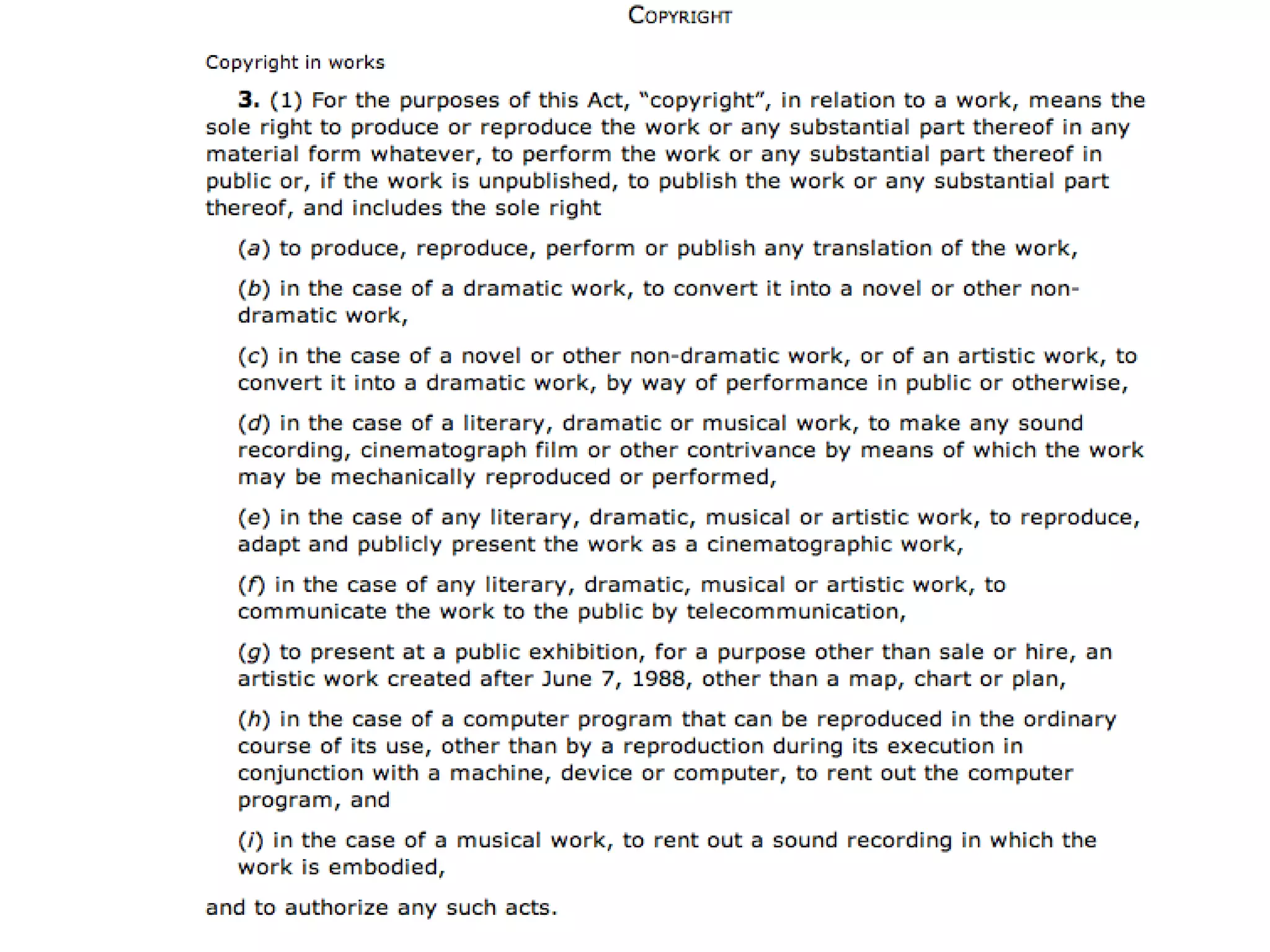
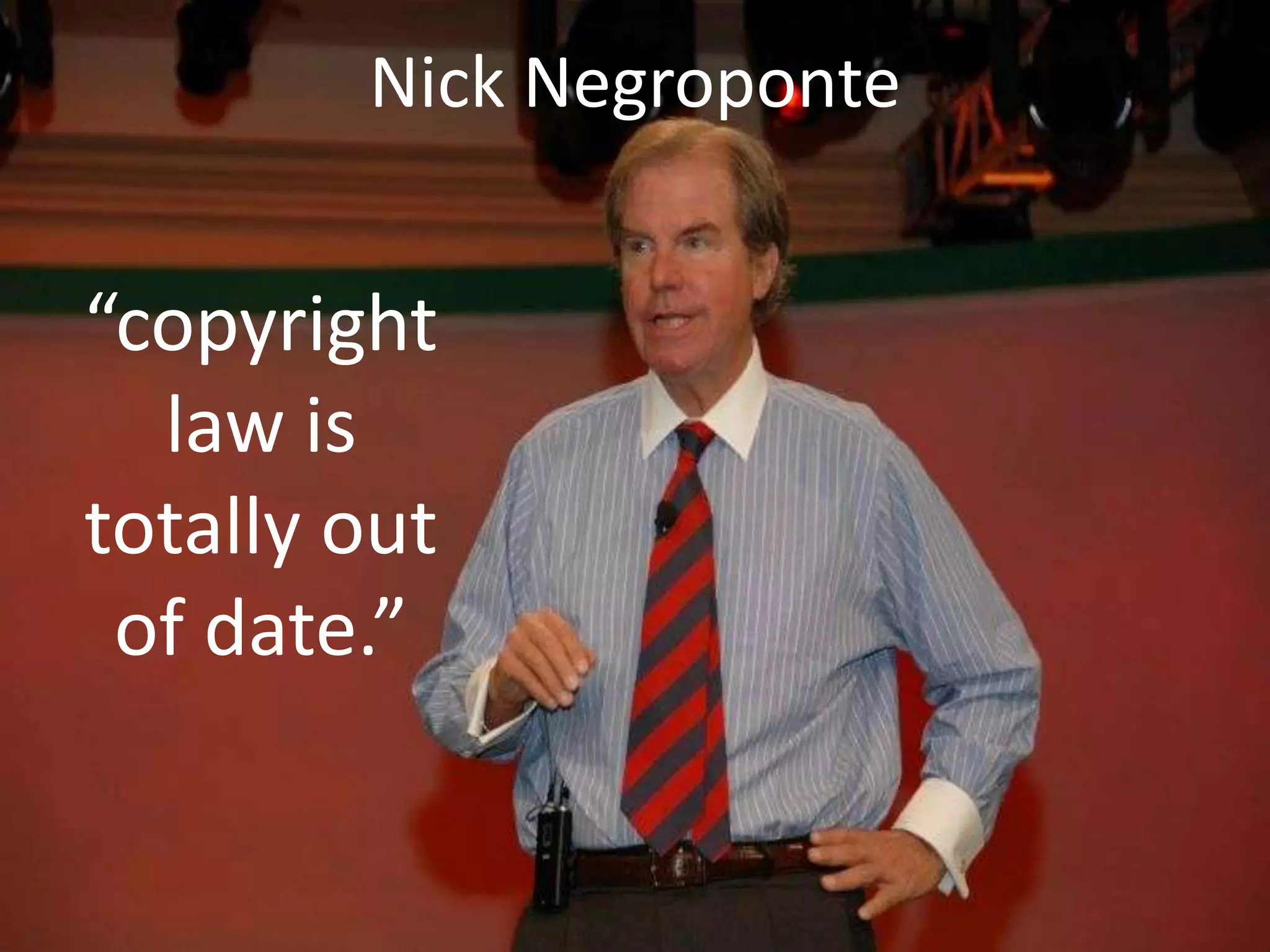
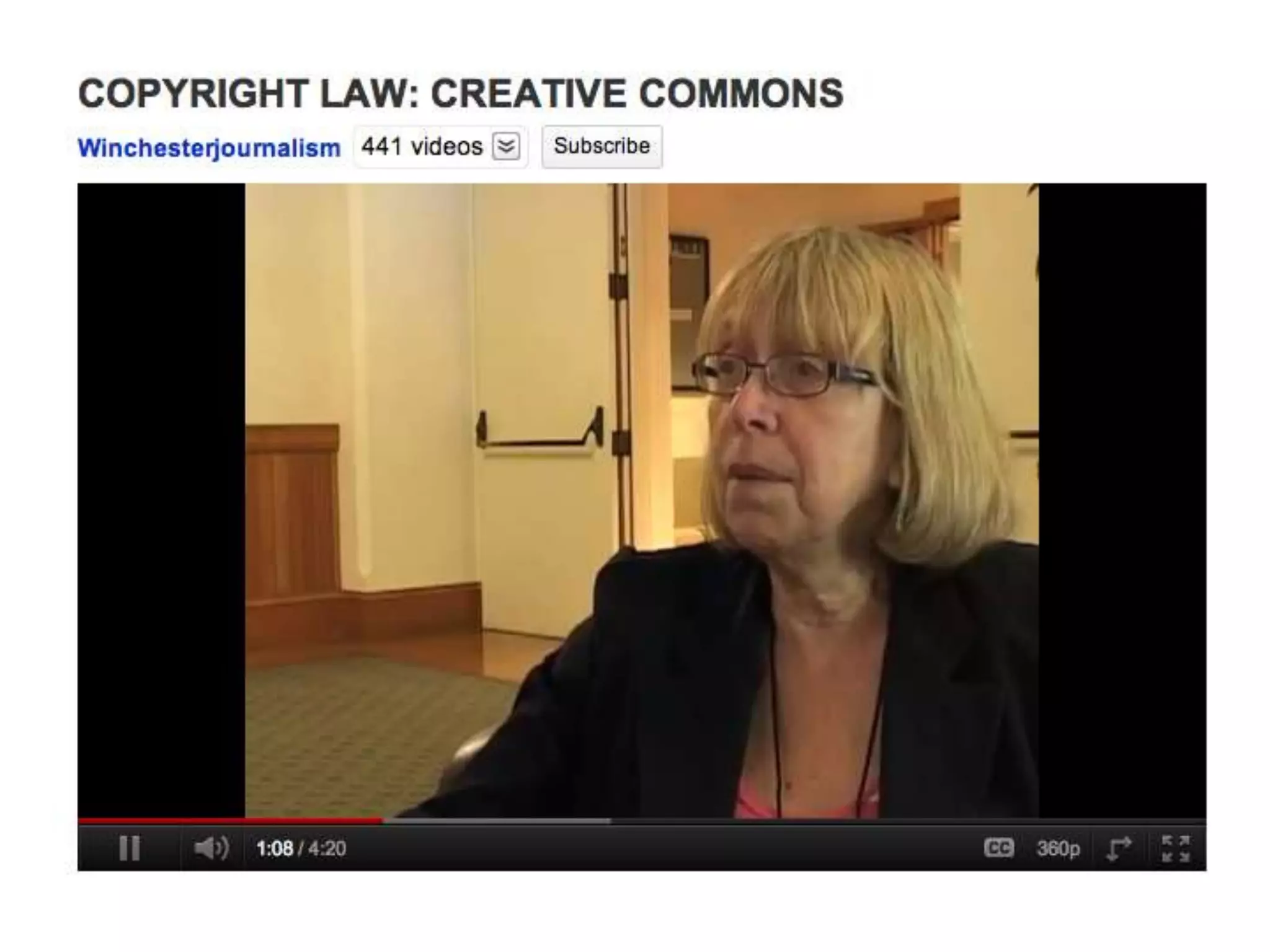
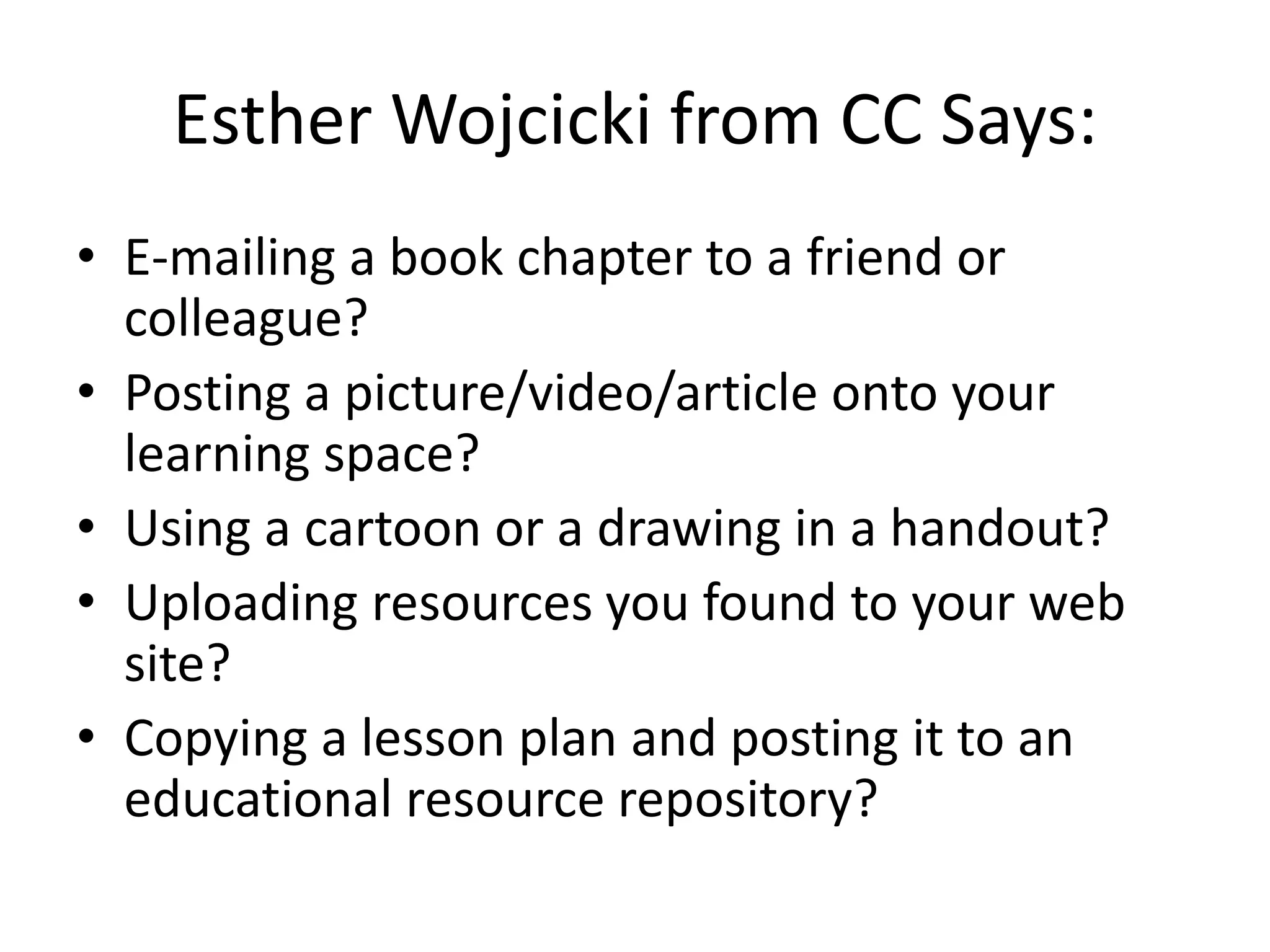
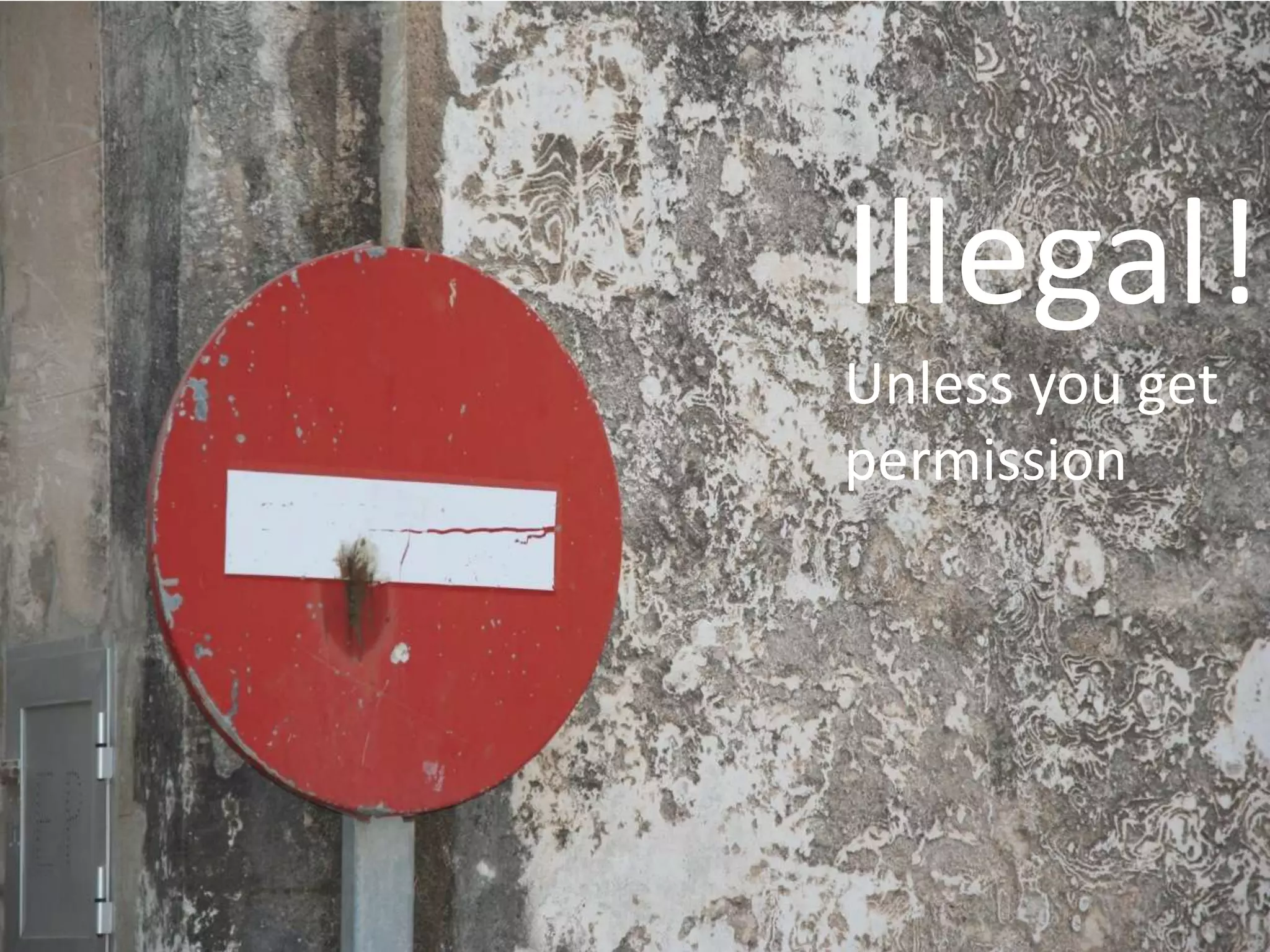
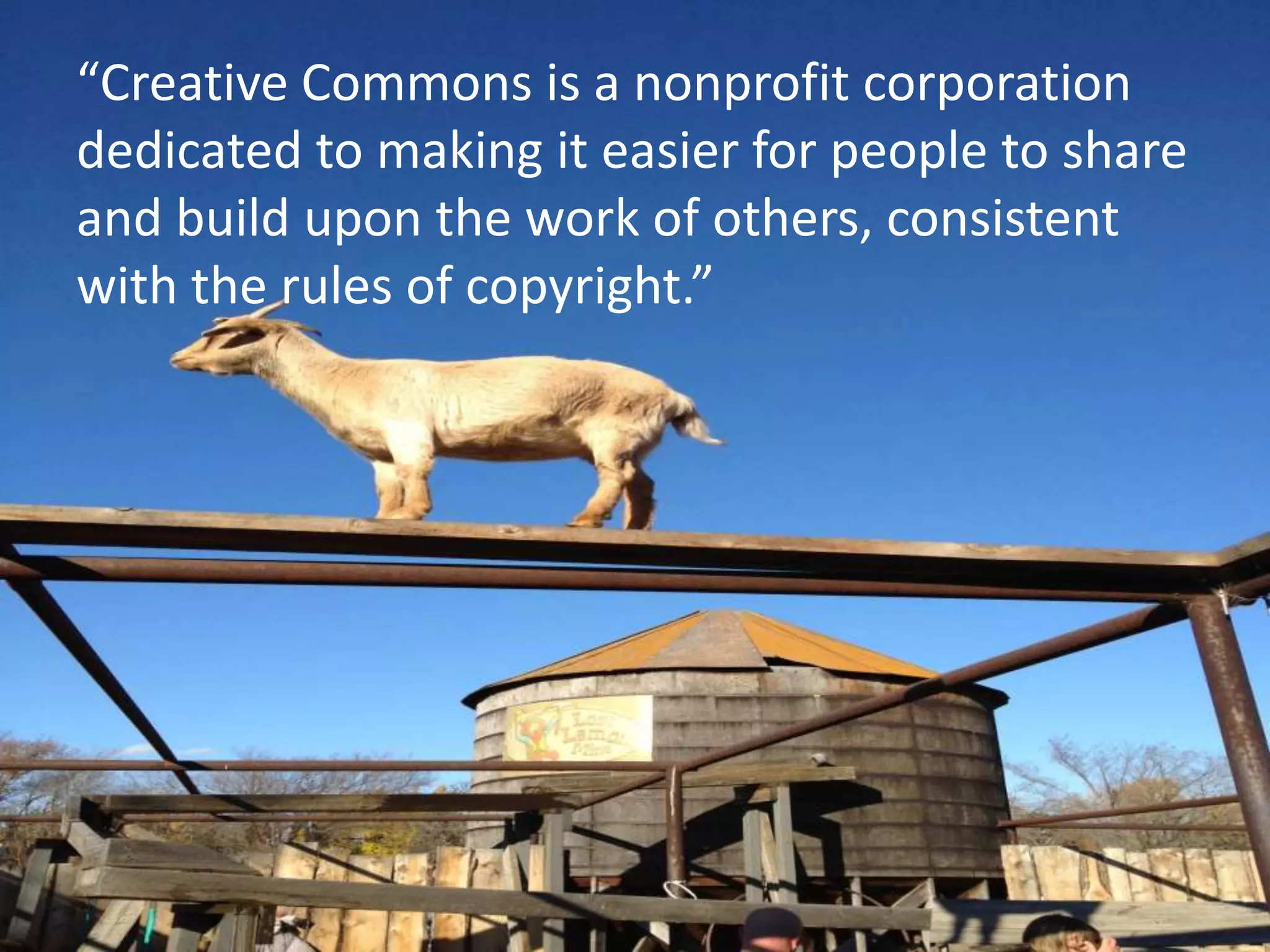
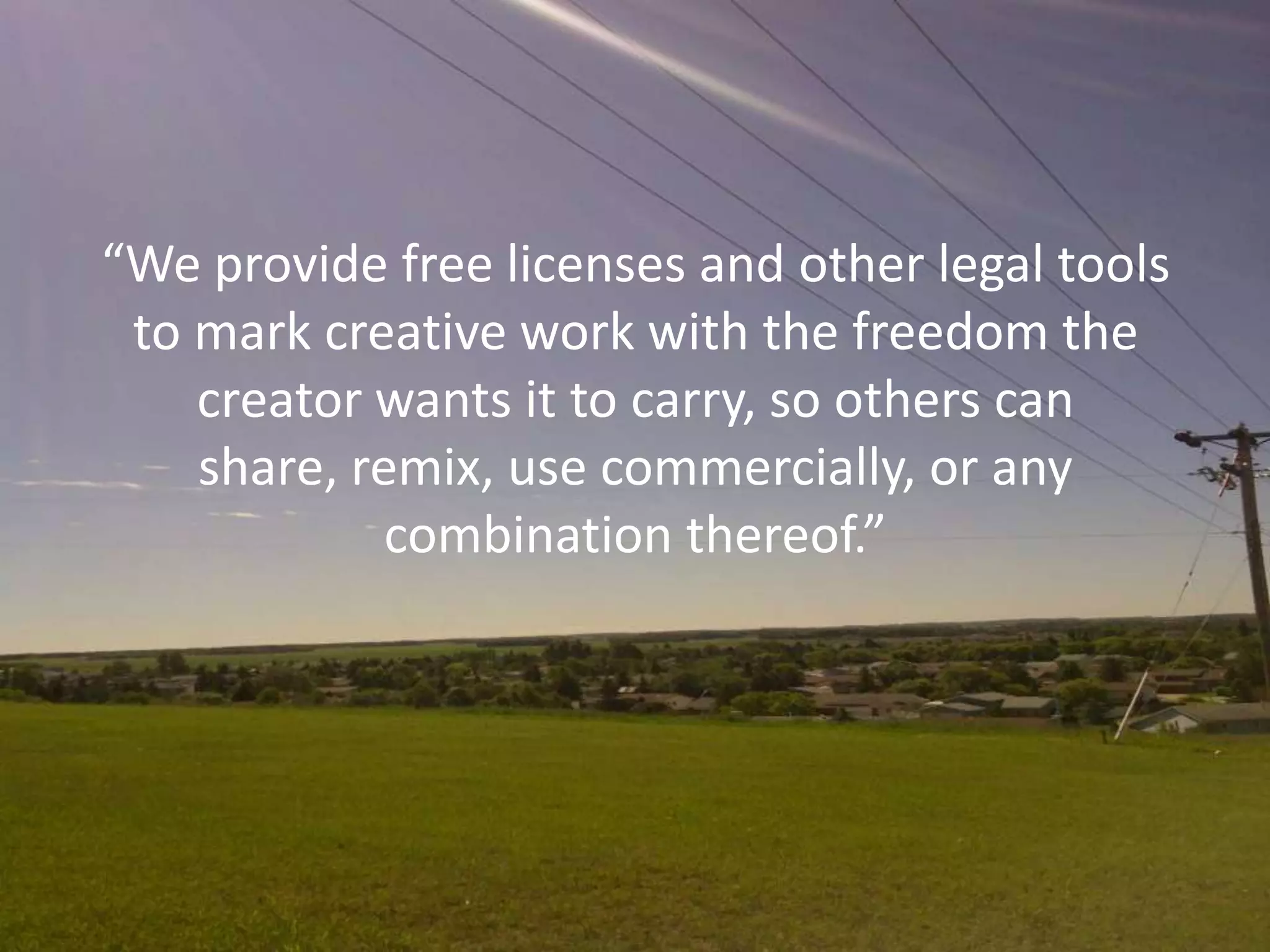
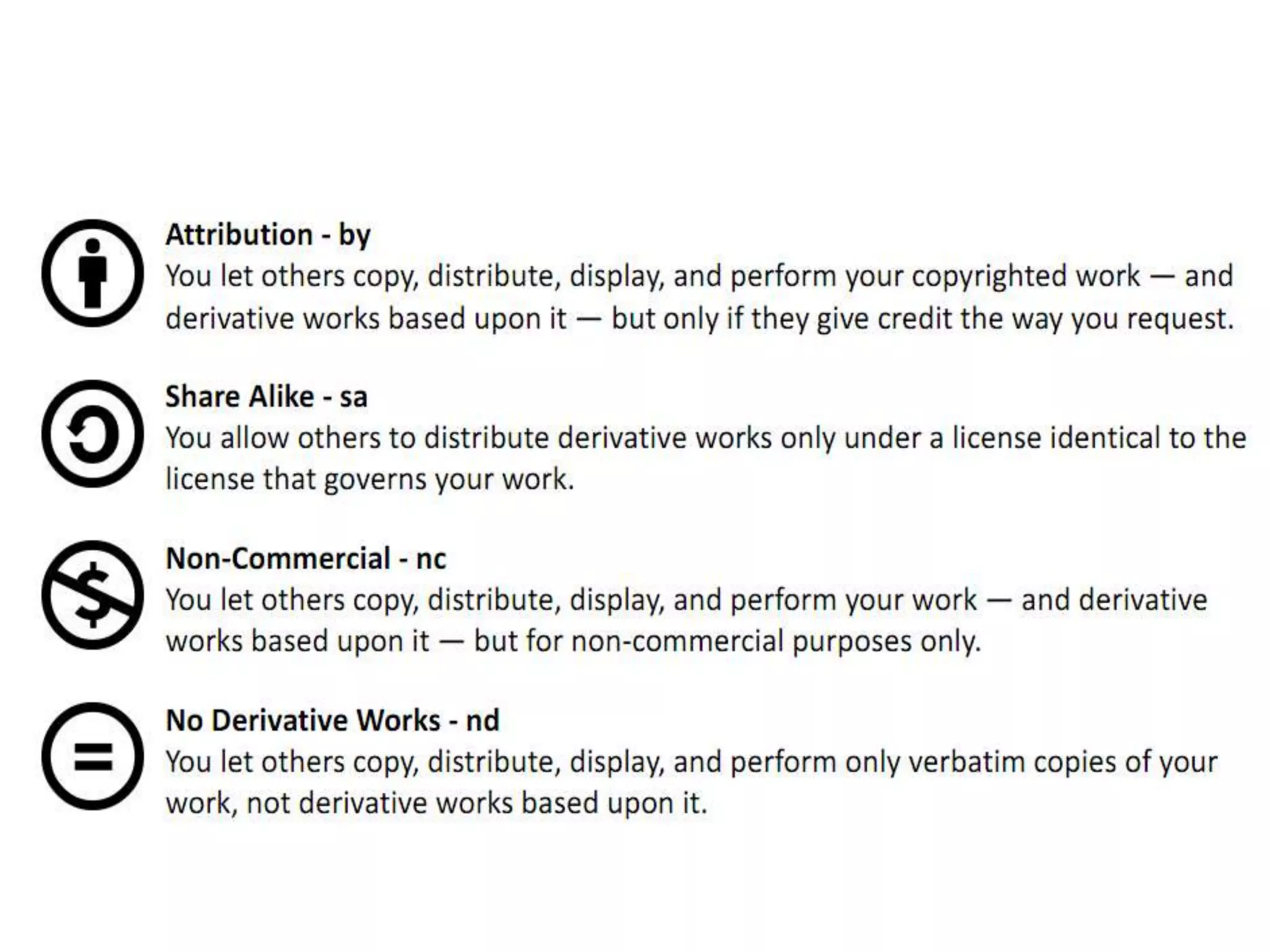
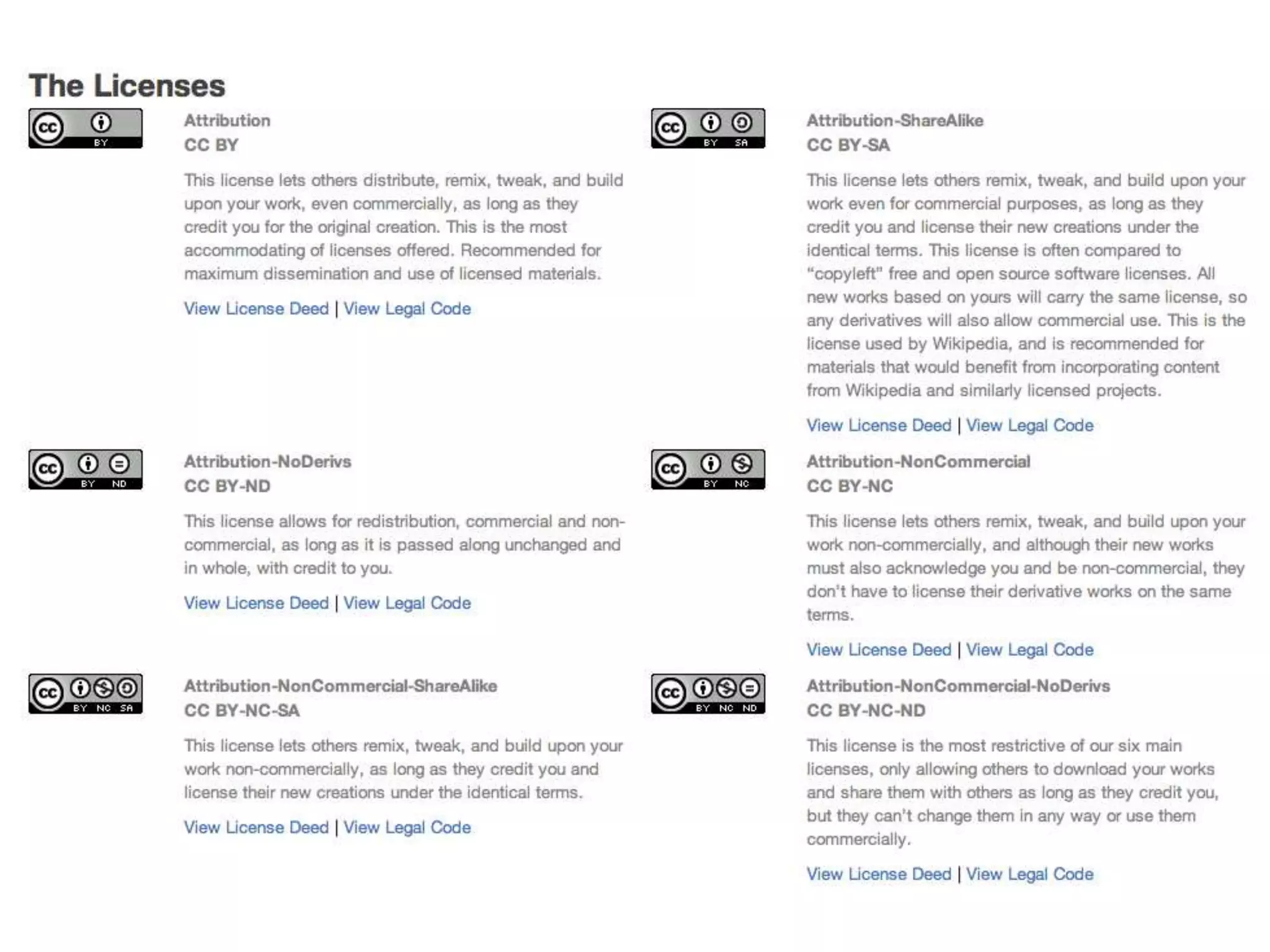
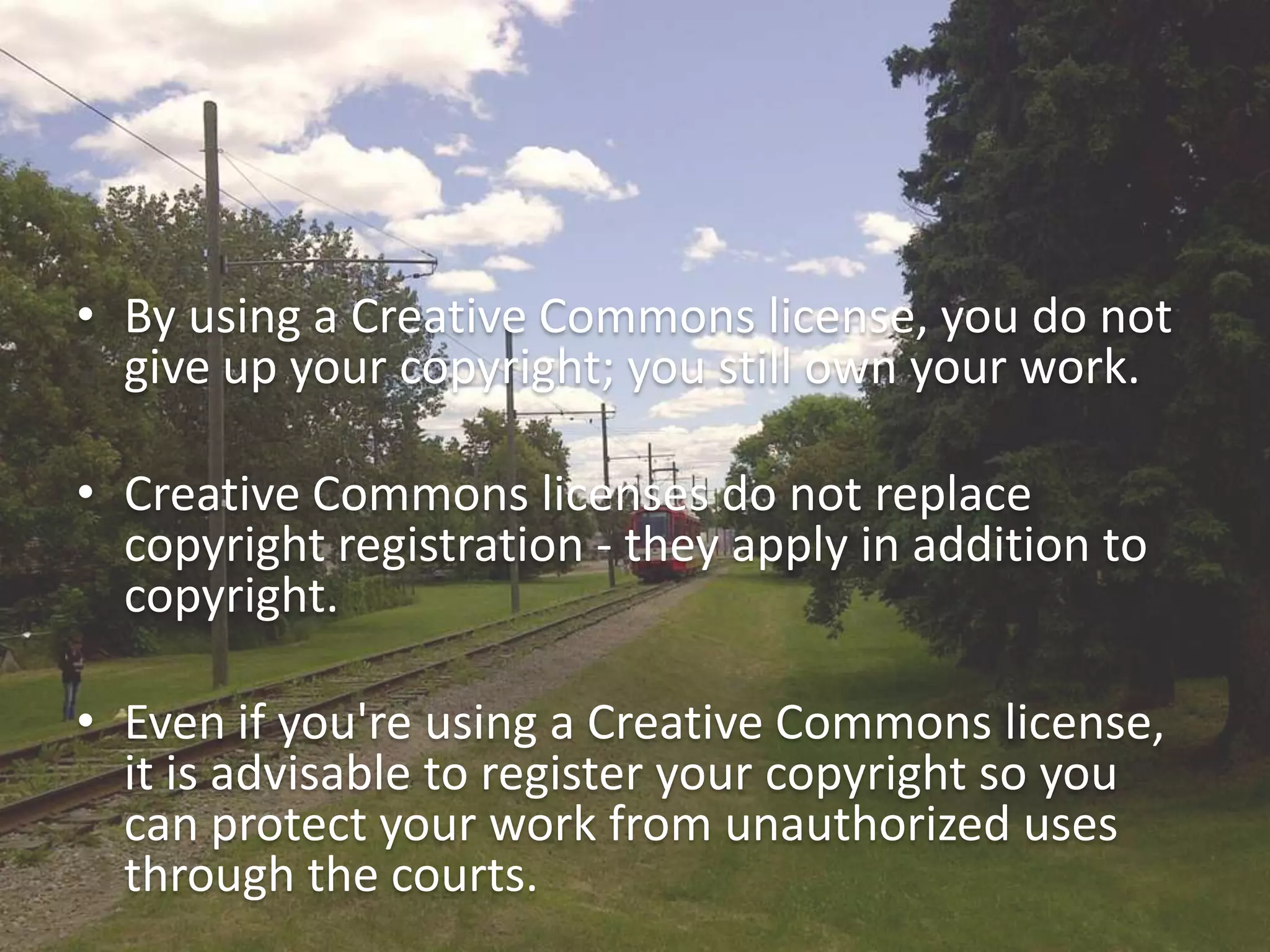
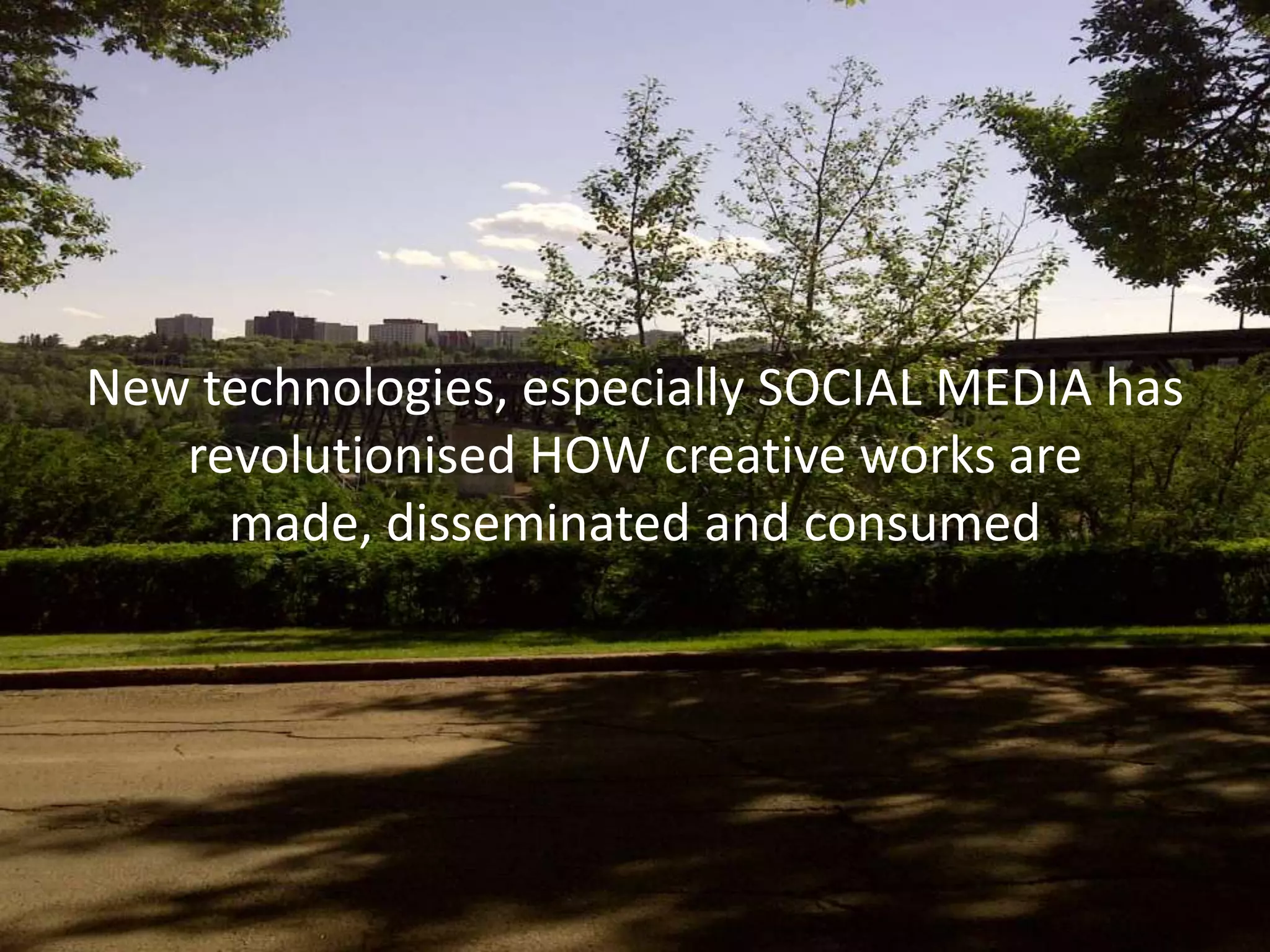

This document discusses copyright and Creative Commons licenses. It provides background on how copyright law is outdated for the digital age. Creative Commons was created to make it easier for creators to choose how they want their work shared while still protecting their copyright. Flickr uses Creative Commons licenses to allow images to be shared and used in different ways depending on the license chosen by the creator.













